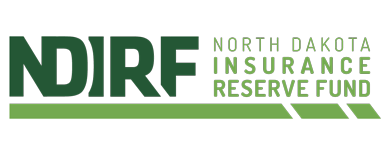Giving your political subdivision’s employees opportunities to grow their professional knowledge and further hone their skills is “can significantly enhance employee buy-in. In fact, studies indicate that 94% of employees are more likely to stay with an organization that offers professional development pathways” (Goodbread, J., Five Strategies for Driving Employee Engagement, www.Forbes.com, accessed 7 Jan. 2024).
Whether you have an existing internal training program or you’re looking for a place to start, the NDIRF’s online training platform LocalGovU can help! LocalGovU gives you access to thousands of online local government training courses for every department within your political subdivision – from HR and professional development to road maintenance and equipment safety, and even POST certified law enforcement courses.
Any of your political subdivision’s employees can access these courses at no cost through your entity’s NDIRF membership. Registration takes only a few minutes, and you can even set up a curriculum specific to your employees’ needs, complete with automated email reminders. Think “set it and forget it!”
Join the North Dakota political subdivisions today who are already using LocalGovU to provide their employees with self-paced, online training courses that feature the latest information and industry trends.
To demonstrate the variety of courses LocalGovU offers, check out the top 10 courses NDIRF members completed in 2023:
*Course summaries provided by LocalGovU (www.ndirf.localgovu.com, accessed Jan. 7, 2024).
1. Anti-Harassment in the Workplace
Harassment in the workplace is a serious issue that requires a thorough understanding to promote awareness and ultimately prevention. Improper behavior in the workplace may have significant consequences for those involved, for yourself as an employee, and your employer. Recognizing the various types of harassment will help you to identify potential warning signs and take the necessary steps to report harassment.
2. Sexual Harassment in the Workplace
Improper behavior in the workplace may have significant consequences both for yourself and your employer. If you are a victim of sexual harassment, this may create a hostile work environment which takes a toll on your career, your personal life, and your health. Recognizing what sexual harassment is, both the subtle cues as well as the overt advances, will help you to identify potential warning signs and take the necessary steps to report sexual harassment.
3. Defensive Driving Basics
This is a general education course, and the Academy is not responsible for continuing education credits that are rejected in any way. Given the variation in the approval and acceptance of continuing education credits state to state, it is advised that you confirm recertification and training requirements, including accepted courses, with your administrator and check the accreditation page on our site that corresponds with your state.
4. Workplace Bullying
When we think of bullying, we immediately associate it with the school yard, certainly not something we face as an adult. Unfortunately, bullying in the workplace occurs more often than you think. In fact, there are various forms of bullying, from overt forms to those which are quite passive.
Workplace bullying may have significant consequences for those involved, for yourself as an employee as well as your employer. A thorough understanding of workplace bullying will help promote awareness and ultimately prevention.
5. Anti-Bias Training for Law Enforcement
The face of America continues to evolve, and our nation is more diverse than ever before. People in cities, suburbs, and towns served by law enforcement are a rich tapestry of races, ethnicities, religions, and cultures. This diverse group of individuals deserves to be treated with kindness, compassion, and respect. Unfortunately, tragedies can result when there is an adversarial relationship or misunderstanding between law enforcement and the community. Recognizing the diversity and types of bias when serving the community will reduce misunderstandings, confusion, and stereotypes while promoting knowledge and awareness for the officer. In this one-hour course, we will explore many effective strategies to help you to connect with the community along with recommendations you can use immediately.
6. Airborne and Bloodborne Pathogens
Humans are walking sources of air and fluid, and the air and fluid of others are potential sources of infections for first responders. This 1-hour course will review the airborne and bloodborne pathogens first responders commonly encounter in serving their communities, as well as the equipment and preventative measures that protect first responders from infectious pathogens.
7. Successful Customer Interactions
There is a strong correlation between customer satisfaction and the success of a business or department. Welcoming customers means working to create satisfied customers from the inside-out. When local government creates satisfied customers, we create empowered and informed citizens. In this course, learners will discover how to interact as co-workers and service providers. We will also cover understanding the customer goal and how to create goals that will lead to successful customer interactions.
8. Advanced Defensive Driving Techniques (Tied for 8th)
This is a general education course, and the Academy is not responsible for continuing education credits that are rejected in any way. Given the variation in the approval and acceptance of continuing education credits state to state, it is advised that you confirm recertification and training requirements, including accepted courses, with your administrator and check the accreditation page on our site that corresponds with your state. This course concentrates primarily on advanced defensive driving techniques. You will be given instruction on how to drive defensively in adverse conditions including heavy rain, snow, and ice. We will further discuss how to share the roadways with other motorists, cyclists, and pedestrians.
8. Driving While Distracted (Tied for 8th)
According to the National Center for Statistics and Analysis, every day 9 people die and over 1,000 are involved in a car accident as a result of distracted driving. No matter how long you have had your license, how good of a driver you are, or how safe the roads are, we are all susceptible to driving while distracted. This course will cover the different types of distracted driving, how to avoid each type, as well as evaluate examples of distracted driving in order to focus on how to improve your safety on the road.
8. Ethical Behavior for Local Government (Tied for 8th)
In this course, we will define ethical behavior, provide examples of work situations where a thorough understanding of workplace ethics may be applied, and ways in which you can determine if your decisions and behavior are meeting the appropriate standards.
9. Family and Medical Leave Act
In previous eras, people often became caught in an “either/or” situation because employers were not always cooperative when individuals needed time for personal matters. Employees ran the risk of losing their jobs and benefits if they made the choice of putting their family first. Fortunately, the Family and Medical Leave Act (FMLA) entitles eligible employees to take the time they need to handle life events. We will go over the FMLA in detail to help you understand the basic provisions and how the FMLA can benefit you.
10. Developing Effective Communication Skills
Communicating with coworkers, clients, and management is a core activity for most positions. If you communicate effectively, you are more likely to achieve success in your career and personal life. Being a good listener and knowing how to write effective documents will also ensure your success as a communicator. This course will provide you with tools and suggestions on how to accomplish this goal.
Contact NDIRF Director of Member Services Corey Olson at Corey.Olson@ndirf.com or (701) 751-9107 or visit www.NDIRF.com>Member Benefits>Online Training to learn more about LocalGovU and get started today!













